9 Laws include: Law on Digital Technology Industry; Law on amending and supplementing a number of articles of the Law on Technical Standards and Regulations; Law on amending and supplementing a number of articles of the Law on Product and Goods Quality; Law on Atomic Energy; Law on Science, Technology and Innovation; Law on amending and supplementing a number of articles of the Law on Credit Institutions; Law on Personal Data Protection; Law on Participation in the United Nations Peacekeeping Force; Law on Railways.
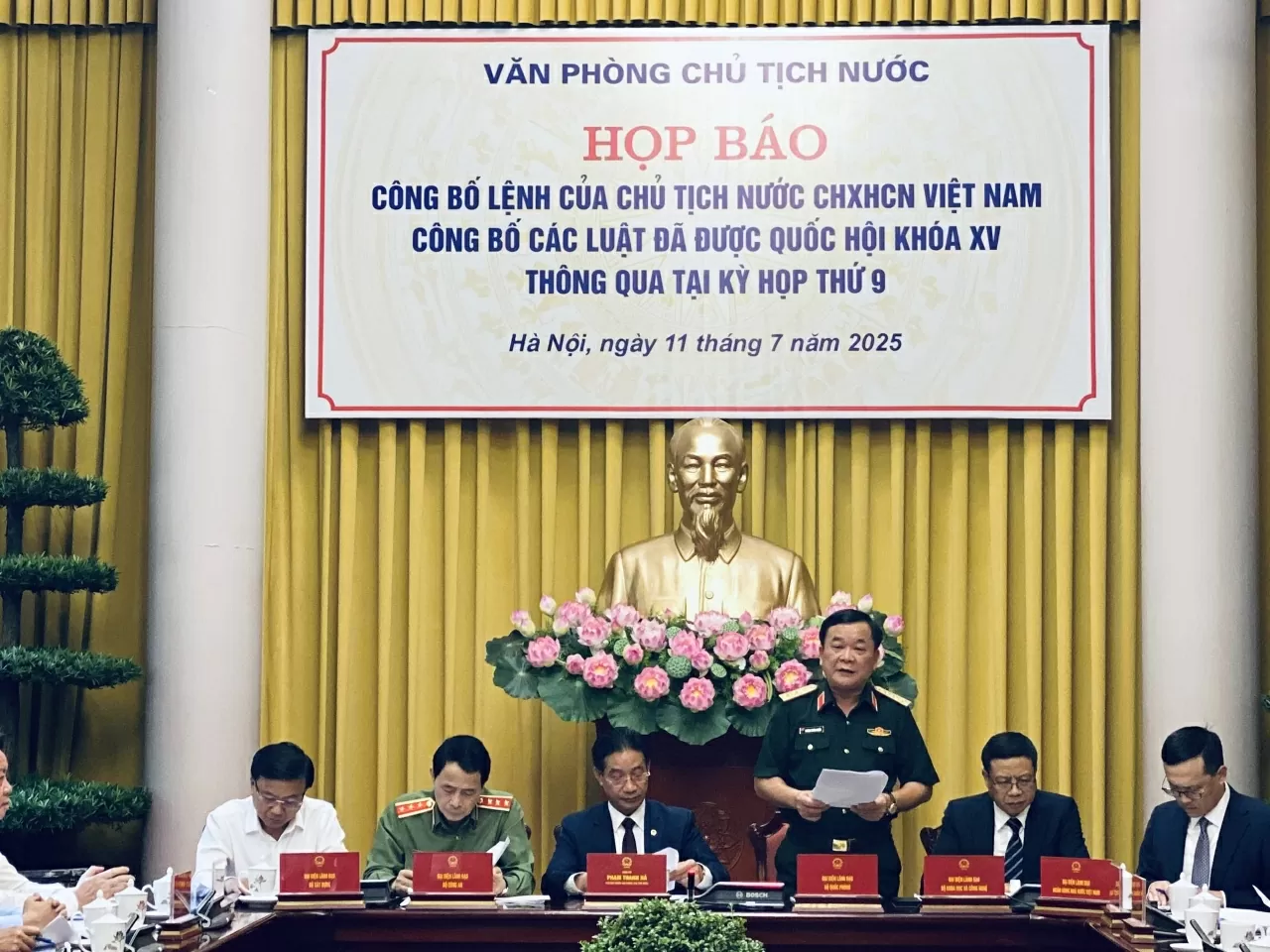 |
| Senior Lieutenant General Hoang Xuan Chien, Deputy Minister of National Defense, introduces the Law on Participation in United Nations Peacekeeping Forces. (Photo: Phi Khanh) |
Officials and civil servants are allowed to participate in the United Nations peacekeeping force.
Introducing the Law on Participation in United Nations Peacekeeping Forces No. 92/2025/QH15, Senior Lieutenant General Hoang Xuan Chien, Deputy Minister of National Defense, said that the Law consists of 5 chapters with 27 articles, taking effect from January 1, 2026.
The Law stipulates that Vietnamese forces participating in United Nations peacekeeping activities include: armed forces; civilian forces (officials, civil servants, and public employees). The Government unifies State management of participation in United Nations peacekeeping activities. The Ministry of National Defense and the Ministry of Public Security preside over and coordinate with ministries and branches responsible to the Government to implement State management of participation in United Nations peacekeeping activities.
Forces participating in United Nations peacekeeping operations are selected from agencies and units under the Ministry of National Defense, the Ministry of Public Security, and ministries, branches, and localities according to regulations on selection conditions and standards for forces under their management, meeting the requirements of the United Nations.
The State's policy on building Vietnamese forces participating in United Nations peacekeeping operations meets modern, professional requirements and is in accordance with United Nations standards. Vietnamese forces participating in United Nations peacekeeping operations during their time on duty abroad are entitled to salary, allowances and other preferential regimes and policies in accordance with Vietnamese law and United Nations regulations.
May 27th of each year is the traditional day of Vietnamese forces participating in United Nations peacekeeping operations.
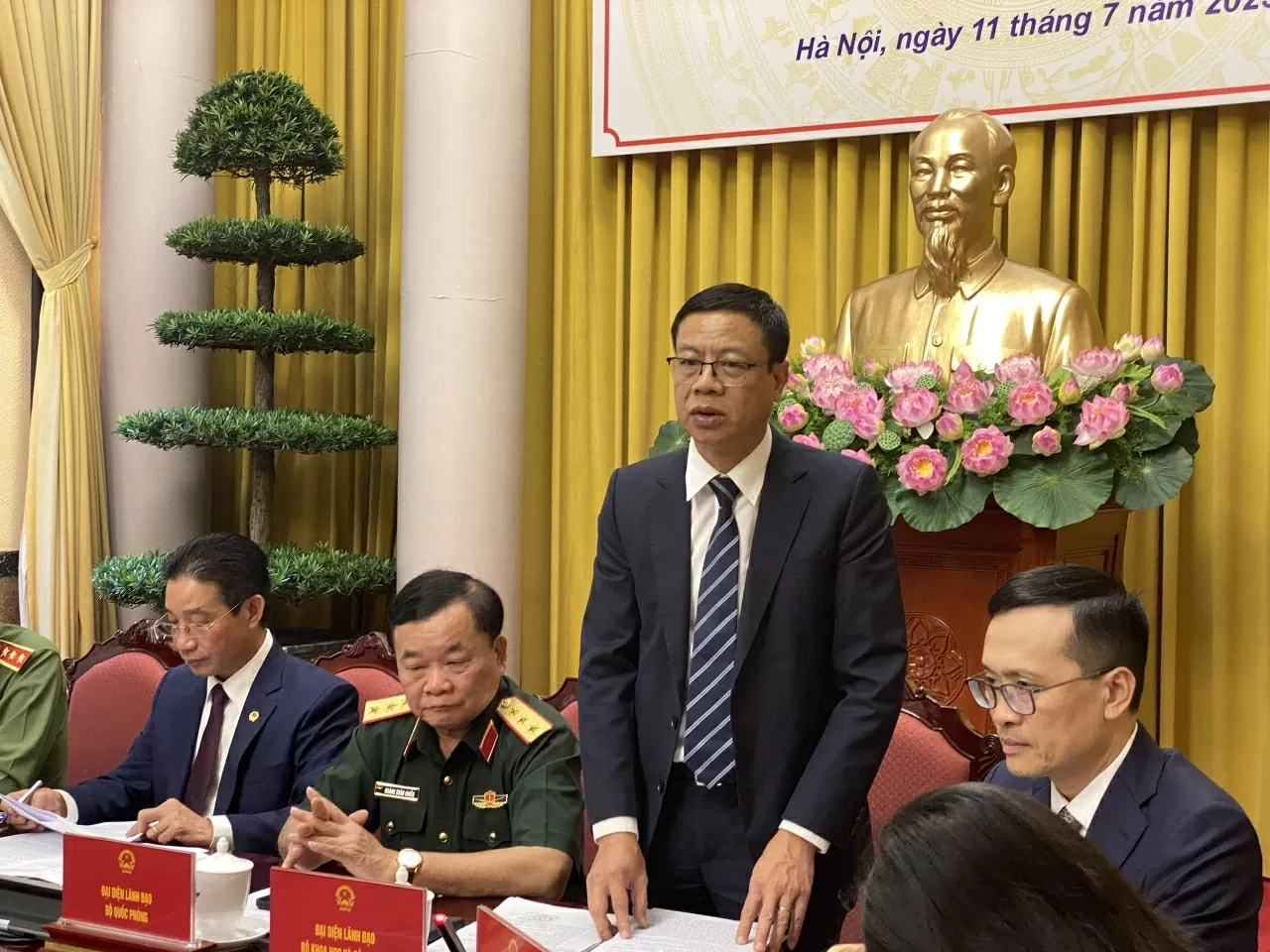 |
| Deputy Minister of Science and Technology Le Xuan Dinh speaks. (Photo: Phi Khanh) |
Creating a legal foundation for cutting-edge digital technology industries
Introducing the Law on Digital Technology Industry, Deputy Minister of Science and Technology Le Xuan Dinh said that the Law will take effect from January 1, 2026, with some contents taking effect from July 1, 2025.
The law comprehensively regulates the fields of digital technology industry, semiconductor industry, artificial intelligence (AI) and digital assets, creating a synchronous legal foundation for the development of cutting-edge digital technology industries.
Accordingly, the law clearly stipulates the core contents related to digital assets, including: Creation, issuance, storage, transfer, establishment of ownership, transactions, security, prevention of money laundering, terrorist financing, business conditions for crypto-asset services...
AI digital technology products must have identification marks, enhance the responsibility of the subjects developing, providing and using AI, promote the application of AI in the economy and society. The development of digital data in digital technology industry activities is regulated by the Law to become important resources and means of production and make artificial intelligence a new production method.
The State has the highest preferential policies to promote research, development, deployment and use of artificial intelligence. The Law on Digital Technology Industry has defined the legal status of digital assets and digital asset management, including virtual assets and encrypted assets, ensuring ownership, transactions and security.
The law also prioritizes investment in essential digital infrastructure such as AI data centers, concentrated digital technology zones, and national laboratories. The new regulations ensure consistency with the current legal system and international practices, while establishing a mechanism for management, supervision, and risk prevention.
Improving national competitiveness
Introducing the Law on Science, Technology and Innovation, Deputy Minister Le Xuan Dinh said that the Law creates a legal corridor for science, technology and innovation to contribute to enhancing national competitiveness, contributing to socio-economic development, ensuring national defense and security, improving people's quality of life and human development.
In particular, the Law has strongly innovated in management thinking, from controlling processes and inputs such as invoices and detailed documents to managing results and output efficiency, accepting risks associated with risk management. At the same time, it establishes a clear direction on the transition from a country that mainly uses core technology to mastering strategic technology. The Law takes effect from October 1, 2025.
| Also effective from January 1, 2026, the Law on Personal Data Protection stipulates that personal data subjects have 6 rights to their personal data. These include important rights in establishing a legal basis for personal data processing activities of relevant organizations and individuals such as: the right to know, the right to agree or disagree, the right to withdraw consent... Along with that is the right to view, edit or request editing, request provision, deletion, limit processing, or object to processing of personal data. When rights are violated, personal data subjects have the right to complain, denounce, sue, and request compensation for damages. The Railway Law has new, "breakthrough" regulations for railway development investment, including promoting decentralization from the Prime Minister to the Minister and from the Government and the Ministry to local authorities according to the motto "locality decides, locality does, locality is responsible" to promote local initiative and creativity in investing in railway system development, especially local railways. The Law takes effect from January 1, 2026. The Law amending and supplementing a number of articles of the Law on Credit Institutions has regulated the adjustment of the State Bank's authority to decide on special loans with an interest rate of 0%/year, without collateral, to ensure complete decentralization and delegation of authority to the State Bank, and timely liquidity support for credit institutions through special loans; regulations on the right to seize collateral; regulations on the seizure of collateral; and the return of collateral as evidence in criminal cases. The Law takes effect from October 15, 2025. The Law amending and supplementing a number of articles of the Law on Product and Goods Quality has comprehensively innovated the method of managing product and goods quality in major directions, such as converting the quality management model according to risks; clearly defining the principles of quality management appropriate to each level of risk; regulating the reduction of administrative procedures for imported goods; applying digital technology, artificial intelligence and big data in supply chain management. The Law takes effect from January 1, 2026. The Law on Atomic Energy supplements regulations on socialization and diversification of forms of mobilizing investment resources in the field of atomic energy, thereby creating conditions to promote the private economy to participate extensively and contribute to the strong development of atomic energy applications. The Law also regulates response to radiation incidents, nuclear incidents and compensation for radiation damage and nuclear damage. The Law takes effect from January 1, 2026. The Law amending and supplementing a number of articles of the Law on Standards and Technical Regulations has added provisions on the National Database on Standards, Measurements, and Quality, creating a digital platform to improve the effectiveness of state management by promoting post-inspection instead of pre-inspection, cutting administrative procedures and compliance costs for businesses. The Law takes effect from January 1, 2026. |
Source: https://baoquocte.vn/cong-bo-them-9-luat-moi-tao-nen-tang-phap-ly-de-phat-trien-cac-nganh-cong-nghe-so-mui-nhon-va-doi-moi-sang-tao-320676.html






![[Photo] Dan Mountain Ginseng, a precious gift from nature to Kinh Bac land](/_next/image?url=https%3A%2F%2Fvphoto.vietnam.vn%2Fthumb%2F1200x675%2Fvietnam%2Fresource%2FIMAGE%2F2025%2F11%2F30%2F1764493588163_ndo_br_anh-longform-jpg.webp&w=3840&q=75)

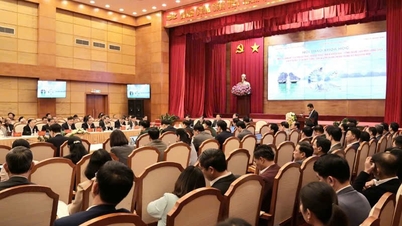

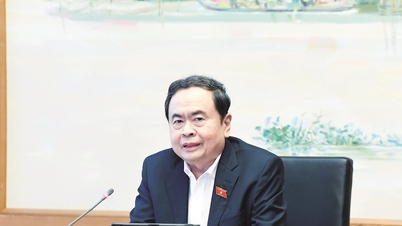

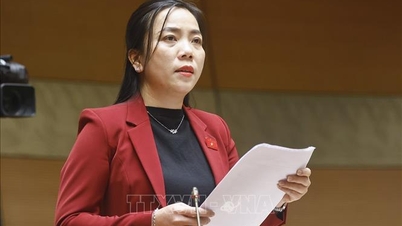
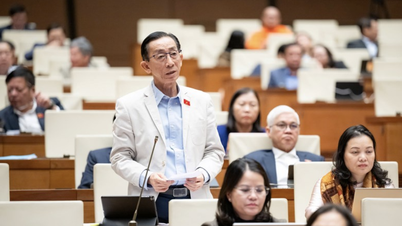
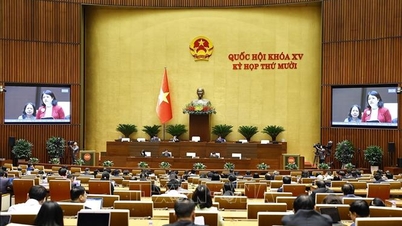


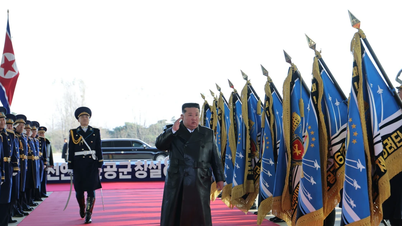

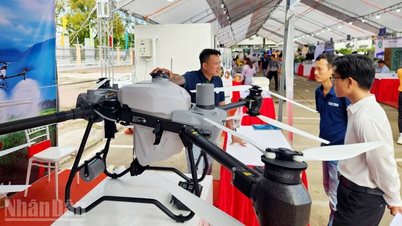










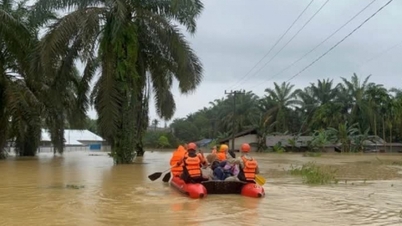
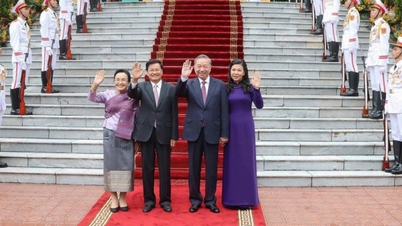
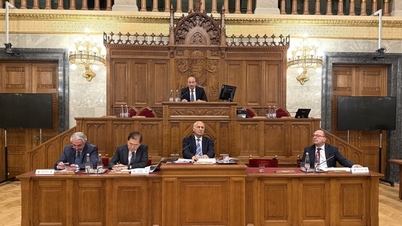
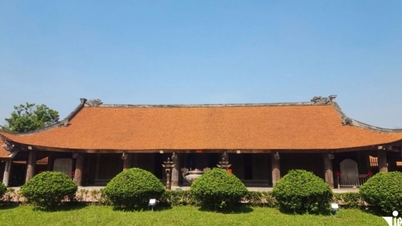








































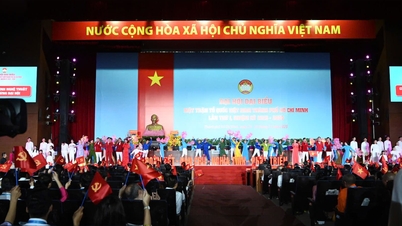




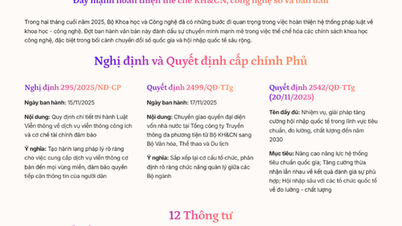

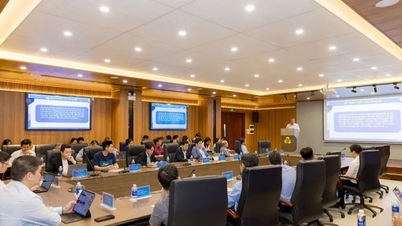
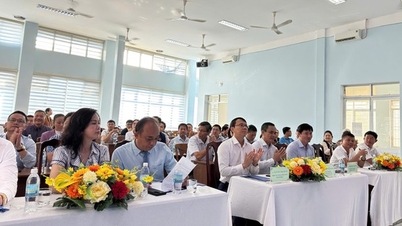
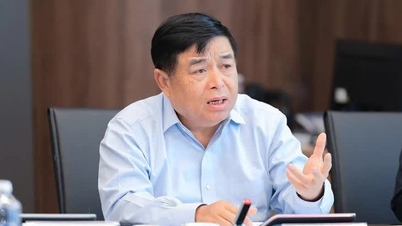

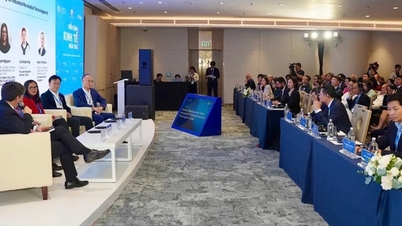
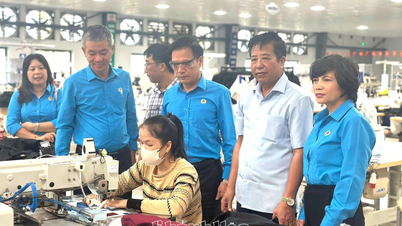

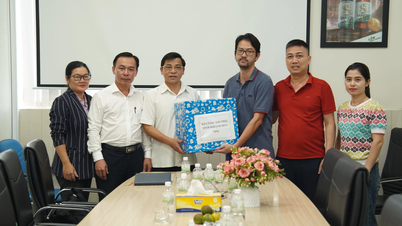
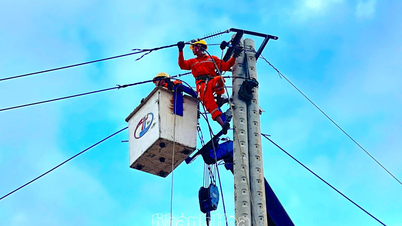




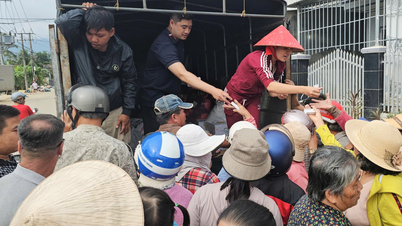









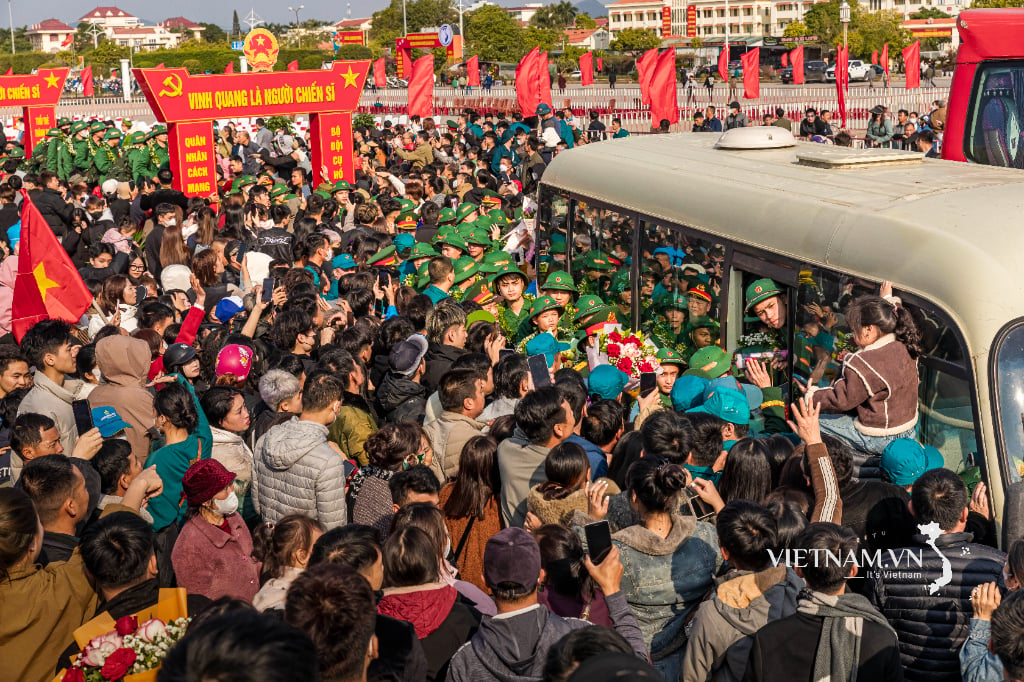


Comment (0)